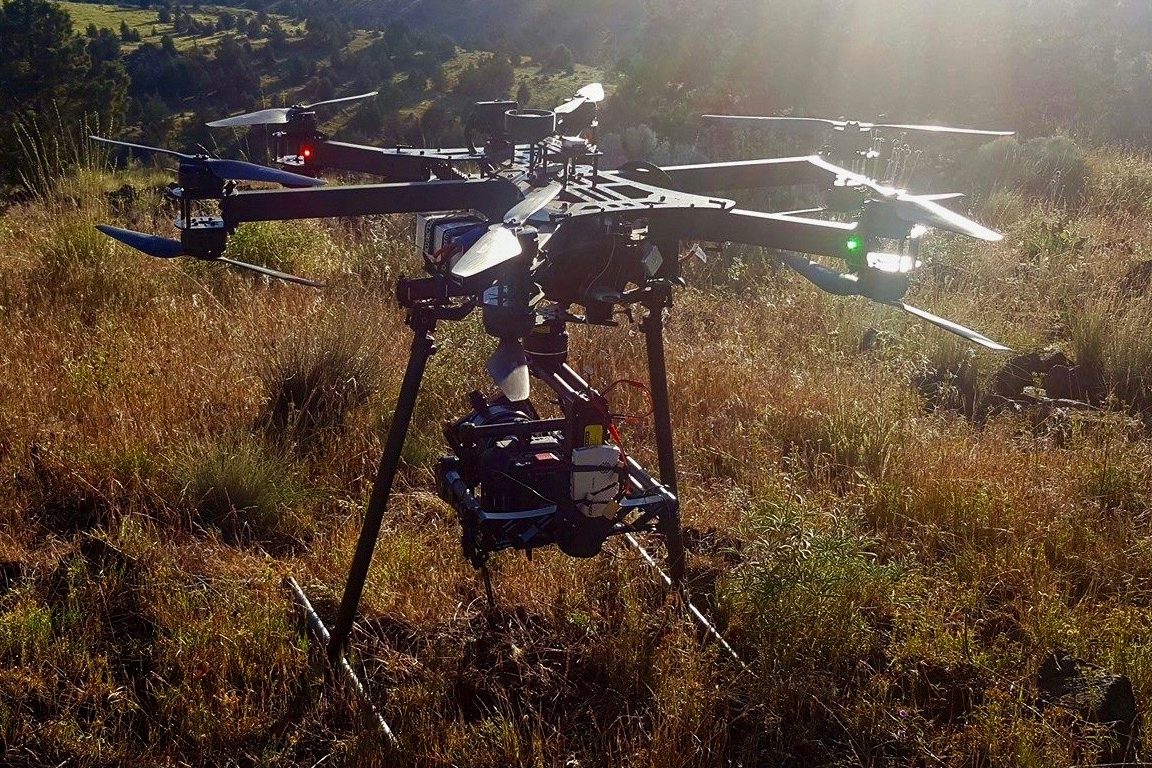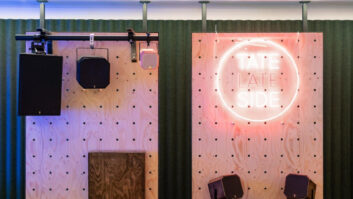
Having previously sought opinions from the AV community on drones, before looking at the more practical implications. We conclude with those passionate about the technology providing insight on the possible opportunities drones present to integrators .
If the legislative requirements for operating drones sound somewhat off-putting, at least flying a drone is relatively straightforward, according to Bob Gillan, director of training at 3iC, a company that provides a broad range of services including consultancy to help its clients investigate and develop market opportunities.
“It really isn’t rocket science,” he laughs, “and the modern platform is extremely stable and generally will hold position using GPS even if the pilot removes his hands from the controls.”
Someone who has successfully mastered the subject and who is an enthusiastic proponent of the opportunity provided by drones is James Ross Heron, formerly a director of media server developer Green Hippo. He has now established Carriage Return, where he plans to use handheld and portable technology alongside drones for video journalism and a new approach to marketing services. He has personal experience of the environment Gillan describes.
“The rush for everyone to open a drone-based business is fraught with red tape,” says Heron. “You must demonstrate an understanding of airspace, weather, the means by which you check potential hazards such as military activity and the safety of the general public. The rules are changing regularly as the numbers of drones rise. Nobody really knows how the rules will go and we really will have to wait and see what happens.”
Stampede’s Kelly is confident that the situation will be rapidly resolved.
“Regulatory agencies always set the pace for the way a new technology is implemented,” he points out. “The key for us as an industry is to achieve complete clarity in understanding a route to the legalised usage of drones in every market application. This clarity has been provided, finally, in the United States and is in the works in other major markets around the world. I have no doubt that 2017 will bring a clearer path forward for all of us to follow. Our focus has to remain on how to safely implement this new technology with a professional class of fully trained drone operators that separates our operators from the amateur or hobbyist drone operator.”
If Kelly’s confidence turns out not to be misplaced, and despite the reservations that integrators continue to harbour on the subject, it’s hard not to wonder what the future might hold.
Exciting
“One of the elements that makes drones exciting is that, every day, we’re surprised by a new deployment of this aerial technology – one we didn’t see coming,” smiles Heron, who gives as examples the rise in outdoor LED screens and large scale projection leading to expensive site surveys, where drones can help moderate the cost as well as gaining accurate results and measurements; the tough challenges 3D projection teams face in acquiring 3D models of structures; and festival work, where he sees an opportunity for drones to undertake daily visual structure checks.
“I’m actually quite excited to see what the AV industry will do with this emerging technology,” he continues. “Just don’t go and buy one from Maplins and give it to your marketing assistant. Firstly, what you’re planning is probably illegal, and secondly, an expert will get the results you need in much less time.”
If Heron is excited, Kelly is passionate.
“Too many integrators are simply missing the opportunity because they are not being presented with the full plan on how to integrate drones into their business model,” he believes, “which is how we’ve helped them succeed. The key thing for integrators to understand is that drones are the delivery mechanism of a complete video-based solution that allows them to expand their business offering at a time when commoditisation is shrinking their margins on other sales.”
“Drones are definitely coming their way,” agrees Gillan.
It’s hard not to be compelled. Those who are already involved are enthused and excited by what they see. Yes, initial scepticism and cynicism are to be expected when any new technology appears. Ken Olsen, for example, the founder of one-time-great minicomputer manufacturer DEC, famously remarked in 1977 that “there is no reason for any individual to have a computer in his home”.
Something is indeed in the air – and if the revolution isn’t quite here yet, it may be closer than we think.







